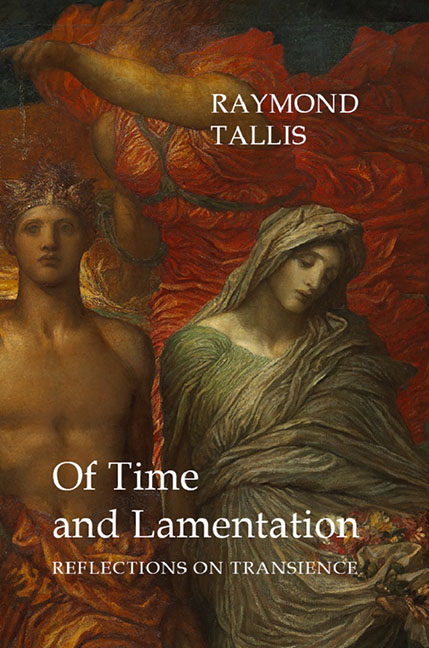Overture (mainly polemic): why time?
Published online by Cambridge University Press: 09 August 2023
Summary
I wasted time, and now doth time waste me. Shakespeare, Richard II
PERSONAL (1)
When I wake up each morning, I am less likely to reflect that a new day has arrived than that yet another day has departed. What we unthinkingly call “the passage of time” tinges the first few minutes with apprehension. I have entered my seventies and, although the end is as invisible as it ever was, my probability of dying in a given year is many times greater than when, as a teenager, I first tried to imagine the extinction of my life, my world, and all those who had shared it with me. My human being is more “begoing” than becoming. As Christopher Hitchens put it, “every day represents more and more subtracted from less and less”. The merely probable “not-yet” is shorter than the definite “no-longer”; and “ago” is increasingly measured in decades rather than years. An optimistic calculation puts the number of days I imagine as “lying ahead” of me between a half and a third of the number that lie behind me: I am somewhere between supper-time and midnight in my life's day. Since my last phase may be marked by chaos, confusion, pain and despair, the period in which I may be capable, in particular capable of thought, will most probably be even shorter than the quantity of time that remains to me.
This may be why, in certain moods, an ordinary Tuesday can seem, from the ordinary Wednesday that succeeds it, unreachable, beyond recall, in its own special sunlight; a privileged place merely in virtue of owning more of the future than does this present day. The extra day of “being there” becomes a giant stretch when I think of the fewness of my days of “I am” compared with the days of “I am not”, the endless – dateless and data-less – night of my absence which lacks even the quality of darkness.
What's more, the pace seems to be quickening. “I can't believe that a year has gone by since …” is now replaced by a second order dismay: “I really can't believe a year has gone by since I last said ‘I can't believe a year has gone by since …’”. Inflation seems to affect time as surely as it does money.
- Type
- Chapter
- Information
- Of Time and LamentationReflections on Transience, pp. 1 - 14Publisher: Agenda PublishingPrint publication year: 2017

